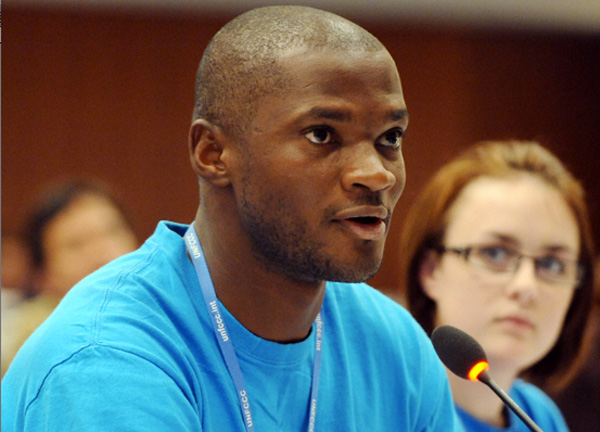A bonk on the head and an amnesia-filled adventure is what it took to shake-up the life of a bored suburban wife of a New Jersey Jacuzzi salesman in the cult classic Desperately Seeking Susan, a film which surprisingly came to mind as I sat down to write about the Bonn climate talks this past week.
Reading the reports, one could be forgiven for hoping someone might knock the negotiators' heads together, in particular the usual OPEC laggards (such as Saudi Arabia and Venezuela) who are using procedural tactics to delay and frustrate progress. But it's not just them. The tired old "I'll move only if you move first" arguments which have pervaded the discussions for years could certainly benefit from a little amnesia. Of course it's equally true that it's less amnesia we need, not more. Nearly 20 years ago, 192 countries (including the United States under George H.W. Bush) legally committed themselves to "stabilizing greenhouse gas concentrations in the atmosphere at a level that would prevent dangerous anthropogenic interference with the climate system." The fact is we are already beyond the point of preventing dangerous interference; we've moved into damage limitation mode. And we're still nowhere near to stabilizing concentrations.
But fortunately, there are some glimmers of light on the horizon.
First, action is happening from the bottom up. Municipal and regional governments are catalyzing change on an unprecedented scale. The C40 Cities Climate Leadership Group (C40), for example, just announced a partnership with the World Bank to break down barriers to financing low-carbon development and climate adaptation.
C40 is made up of 40 of the world's megacities reportedly representing 8% of the total population, 12% of global greenhouse gas emissions and 21% of global GDP (to put this in perspective, the 27 countries of the European Union are responsible for around 13% of global greenhouse gas emissions). They have also teamed up with ICLEI, the leading network of local governments working towards sustainability, to establish common standards for accounting and reporting community-scale greenhouse gas reductions.
 Youngos making a Statement, IISD
Youngos making a Statement, IISD
That's not all. Developing countries, which do not have the same legal obligations to reduce emissions as developed countries, are showing tremendous leadership. A new report by the Stockholm Environment Institute for Oxfam shows that developing country pledges add up to more CO2 reductions than those pledged by developed countries (another excuse for the US to delay action bites the dust) and, a new report by the World Resources Institute shows once again that developing countries are at the forefront of the renewable energy transformation.
Does this negate the need for a new fair, ambitious and binding climate agreement(s), including a second commitment period for the Kyoto Protocol? No, unfortunately it doesn't.
It's not rocket science. In order to fully de-carbonize the global economy as fast as possible, which has many other benefits besides addressing climate change by the way, we need top-down policy. We can do it with an internationally agreed set of rules, or we can do it country by country with all of the chaos that will entail. This is why much of the business community is pushing for the kind of level playing field that would arise from an international agreement. Kyoto was a huge step in that direction, and any new agreement to bind non-Kyoto countries will need something comparable. Many governments are beginning to recognize the pointlessness of starting over from scratch.
Despite all of the rhetoric and posturing to the contrary, insiders say that there are signs of progress being made behind the scenes in Bonn. Governments are apparently beginning to realize they need to send clear and unambiguous signals that there is a future for Kyoto. Without that commitment to the next set of reduction targets, there will be no binding agreement in the other track of the negotiations -- the one that includes developing countries. Conversely many if not most developing countries realize that a new Kyoto commitment will need to be balanced with action on their part.
As the 2012 expiration date for Kyoto's first commitment period looms nearer, the pressure will only increase. Let's hope they can use this week to flesh out the rules and political conditions needed for ambitious countries to move to their higher pledges and signal clearly they will accept a second commitment period under Kyoto.
